“Our commitment to net zero by 2050 is fixed and firm,” IATA’s Director General, Willie Walsh, told delegates at the opening of this year’s annual gathering of airline executives, held recently in Istanbul. However, on the same day, one of the industry’s leading figures, Akbar Al Baker, CEO of Qatar Airways, was telling CNN that net zero couldn’t be achieved within the 2050 timeframe and setting the goal was a “PR exercise”. The results of a survey of aviation industry decision-makers in six countries conducted by Ipsos on behalf of aircraft engine manufacturer GE Aerospace ahead of the Paris Air Show shows a similar difference of opinion as to whether the industry will meet its net-zero goal by mid-century. While a plurality (46%) believe it can be met, 32% said it will not and 22% were unsure. On average, respondents believe it will be met by 2055.
In his interview with CNN, Al Baker, a current member and former chairman of the IATA Board of Governors, said industry targets were unrealistic, given the current volumes of sustainable aviation fuels being produced. Due to a lack of raw materials, even the 2030 volume target would not be reached, he added. He told CNN’s Richard Quest that net zero is achievable, “but to do it in the 2050 timeframe, the industry is far behind.”
In his opening address, Walsh said: “The sustainability challenge is, bar none, the biggest that we will face as leaders of the aviation industry. This will be difficult and take time.” Responding to Al Baker’s comments, he told CNN: “I think it would be wrong for us to try and convince people that this is going to be easy, and it’s going to be cheap – it’s not. But the idea that we can’t do it – no, I don’t accept that.”
The survey, conducted in May, of 325 aviation executives in China, India, UAE, France, UK and USA, showed 76% of respondents believed sustainability has fundamentally changed the way the industry operates, with a plurality (30%) identifying that meeting the industry’s sustainability goal is the top current challenge. A strong majority (88%) reported their organisations already had sustainability strategies in place, with most saying these strategies had already had a major or moderate impact on how their company operates (74%), invests (73%) and hires (62%).
The major hurdles cited by respondents in meeting the net zero challenge were rising costs, budgetary pressure, supply issues and energy resources. They identified advancements in fuels (SAF and hydrogen) and engines would play the biggest role in reaching net zero but were split as to whether progress is happening at the right pace, with 51% saying it is too slow. Government is seen as having a key role in applying the most pressure to accelerate decarbonisation, followed by investors.
The responses showed an overall even split on whether consumers were prepared to pay more for a sustainable flight. However, 74% of respondents from China believed they were willing but 65% of Indian respondents said industry could not rely on a willingness by consumers to pay more.
Commenting on the results of the survey, Allen Paxson, VP & GM Commercial Programs Strategy at GE Aerospace, said: “They show the aviation industry is focused on the goal of achieving net zero emissions by 2050, while also recognising the need to accelerate efforts and ensure all key stakeholders are on the playing field. With GE Aerospace and our partner engines powering three-quarters of the world’s flights, we recognise the important responsibility we have to meet the industry ramp and to do so more sustainably and more efficiently for our customers.”
Photo (Adam Senatori): GE’s GEnx engines power Qatar Airways’ Boeing 787-9 aircraft


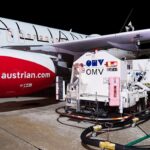
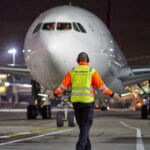




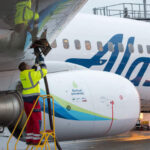
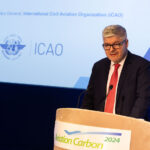



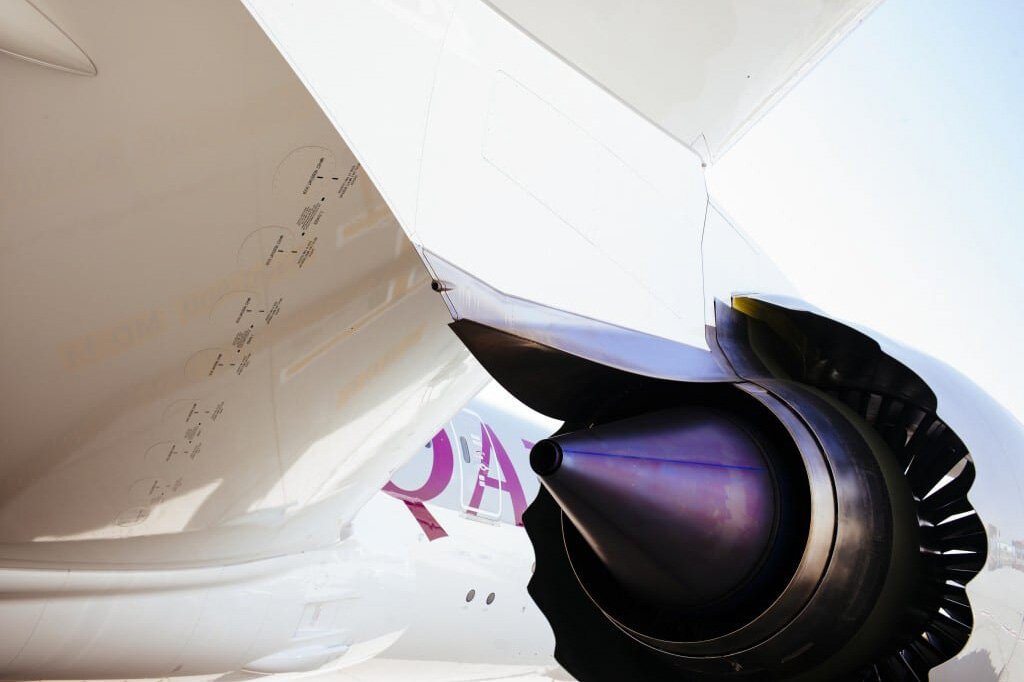


More News & Features
ICAO signs agreement with IRENA to boost finance opportunities for SAF production
Cambridge report sets four goals to be implemented by 2030 for global aviation to reach Net Zero
Inclusion of SAF in new climate legislation for EU cleantech industry welcomed by aviation sector
Shortages of new aircraft impact aviation’s sustainability plans, says aircraft lessor Avolon
Australia focuses on emissions in Aviation Green Paper, as Qantas ups SAF commitments
European Parliament adopts rules to stimulate supply of sustainable aviation fuels